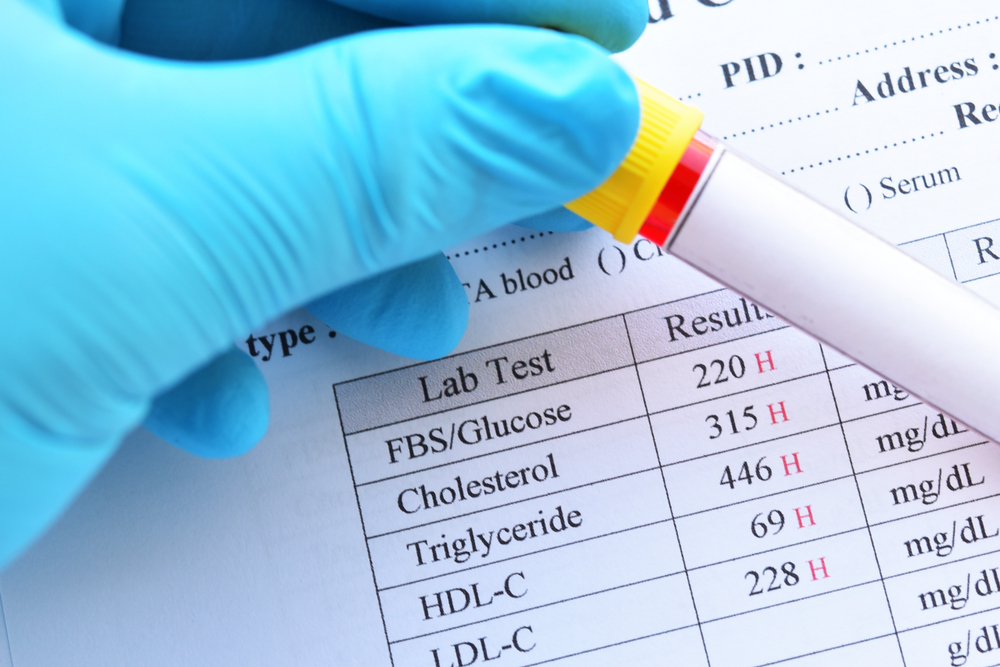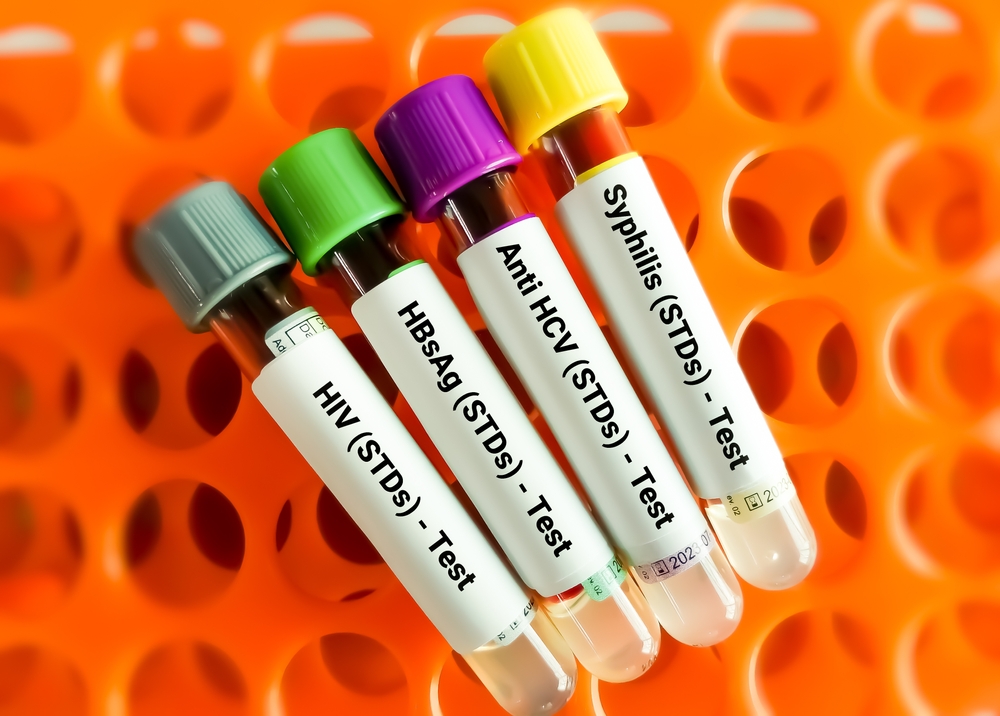
Why Regular Comprehensive Blood Panels Are Vital for Preventative Health
Regular blood tests are an important part of staying on top of your health.
Most blood tests are fundamental to routine and preventive care, with around 70% of medical decisions relying on lab results for accurate diagnosis and treatment. People who regularly get blood tests are more likely to stay proactive with their health.
This blog highlights the benefits of routine blood panel testing for maintaining good health and preventing potential health issues. We will also discuss important blood tests and what each test measures.

Benefits of Routine Blood Panel Testing
Routine blood panel testing offers numerous benefits for better health management and disease prevention. Here are the key advantages:
- Routine blood tests can identify potential health problems before they become serious. For example, blood sugar or high cholesterol levels can be spotted early. This allows you to adjust your lifestyle or start a treatment immediately that prevents it from escalating, such as heart disease or diabetes.
- Regular blood panels track disease progression and treatment effectiveness for those with chronic illnesses. This monitoring can ensure that any necessary adjustments are made to manage the condition effectively.
- Blood panels provide a comprehensive overview of various bodily functions, such as liver and kidney health, red and white blood cell counts, and hormone levels. This helps maintain optimal health and detect issues that might not show obvious symptoms.
- Blood test results help doctors create or adjust treatment plans tailored to your needs. For example, if your doctor finds signs of iron deficiency anemia, they can recommend dietary changes or supplements.
When is a Blood Test Required?
Regular blood tests help keep your health on track by catching problems early. But when do you actually need one? Regular testing is important for preventing potential issues and maintaining your well-being.
You should consider getting a blood test for the following reasons:
- Routine Check-Ups: Doctors often recommend them during yearly or bi-annual visits to monitor health and identify problems early.
- Family Health History: If conditions like heart disease or diabetes run in your family, blood tests can help determine your risk.
- Symptoms: If you’re feeling constantly tired, losing or gaining weight unexpectedly, or dealing with unexplained pain, a blood test can help find the cause or help in early detection. This helps confirm a diagnosis or see if further specialized tests are needed.
- Age and Risk: Adults aged 40-70 who are overweight or have obesity should get a blood glucose test. This detects early signs of diabetes and helps manage risks.
- Pregnancy: Routine blood tests during pregnancy, including a CBC and blood type screening, are vital to ensure the health of both mother and baby.
- Medication Checks: If you’re on prescription drugs, blood tests can show if they’re working correctly or causing issues.
- Monitor Chronic Conditions: Those with health problems like high cholesterol or kidney disease need blood tests to track their condition.
Key Blood Tests and What They Measure
Blood tests are an important part of preventive healthcare, offering valuable insights into your overall health.
Regular blood tests give your doctor the data to monitor your health, catch potential issues early, and guide necessary changes or treatments. Routine blood panels provide detailed information about various blood components, each contributing to a complete picture of how your body is functioning. Here are the different types of blood tests and what they measure:
1. Complete Blood Count
The Complete Blood Count, or Complete Blood Picture, is one of the most common blood tests used to assess overall health and detect potential issues.
CBC test measures several components of your blood, such as the count of healthy red blood cells, white blood cells, hemoglobin, hematocrit, platelets, etc. These measures can provide insight into conditions such as anemia, infections, blood cancer, immune disorders, etc.
A CBC test is often part of routine blood work and can be performed during an annual check-up. Below is the normal range of results commonly used by laboratories:
| Component | Normal Range |
| Red Blood Cell | male: 4.5–6.1 × 106/ microliter (μL); female: 4.0–5.4 × 106/μL |
| White Blood Cell | male: 4.0–10.8 × 103/μL female: 4.0–10.8 × 103/μL |
| Hemoglobin | male: 13.0–17.0 grams/deciliter (g/dL); female: 12.0–16.0 g/dL |
| Hematocrit | male: 40–52%; female: 37–47% |
| Platelets | male: 150–400 × 103/μL female: 150–400 × 103/μL |
2. Basic Metabolic Panel (BMP)
This is another important blood test that evaluates key chemical levels in your blood, providing insight into your metabolic health.
A Basic Metabolic Panel measures several critical components, such as electrolytes, glucose, and kidney function markers. This test is often prescribed during routine blood work or when diagnosing conditions like diabetes, dehydration, or kidney disease.
For instance, the BMP includes a blood glucose test, which is recommended for individuals aged 40–70 who are overweight or have obesity. This also detects early signs of diabetes. The basic metabolic panel also measures electrolytes like sodium and potassium, vital for maintaining hydration, nerve function, and muscle contractions.
| Test | Normal Range |
| Glucose | 70–99 mg/dL (fasting) |
| Sodium | 135-145 mEq/L |
| Potassium | 3.7–5.2 mmol/L |
| Calcium | 8.5–10.2 mg/dL |
| Blood Urea Nitrogen (BUN) | 6-20 mg/dL |
| Creatinine | 0.6–1.3 mg/dL |
| Carbon Dioxide (CO2) | 23-29 mEq/L |
| Chloride | 96–106 mmol/L |
3. Comprehensive Metabolic Panel
The Comprehensive Metabolic Panel (CMP) expands on the Basic Metabolic Panel by including additional tests to assess liver function alongside kidney function, electrolytes, and glucose levels.
It is a key diagnostic tool for evaluating organ health, metabolic balance, and overall bodily function. A CMP is often recommended to monitor chronic conditions like diabetes or liver disease and to detect imbalances that may require further medical attention. It includes specialized tests for proteins, enzymes, and other substances, providing a more detailed picture of your health.
Here are the normal ranges for each component, along with potential diagnoses for high and low levels.
| Component | Normal Range | High-Level Indications | Low-Level Indications |
| ALP (Alkaline Phosphatase) | 44–147 IU/L | • bile duct blockage • cirrhosis • gallstones • hepatitisgallbladder inflammation • Paget’s diseasemononucleosis | • bone metabolism disorders • malnourishment• heart surgery • zinc deficiency |
| ALT (Alanine Transaminase) | 7-56 IU/L | • cirrhosis • liver cancer • liver damage• hepatitis | Considered Normal |
| AST (Aspartate Transaminase) | 7-56 IU/L | • cirrhosis • hepatitis• heart conditions• (mono)pancreatitis • mononucleosis | Considered Normal |
| Bilirubin | 0.1–1.2 mg/dL | • adverse medication reactions• abnormal red blood cell destruction (hemolysis) • bile duct blockage • hepatitis• Gilbert’s syndrome | Considered Normal |
4. Lipid Panel
This is one of the common blood tests that evaluate the levels of fats in your blood, such as cholesterol and triglycerides.
It helps assess your risk for heart disease, stroke, and other conditions related to blood vessels and blood pressure. According to the American Heart Association, nearly half of U.S. adults have high cholesterol, which can be identified and managed through routine blood tests.
The lipid panel provides critical insights into your heart health by measuring total cholesterol levels, low-density lipoprotein (LDL), high-density lipoprotein (HDL), and triglycerides. Imbalances in their values can indicate potential cardiovascular risks, prompting lifestyle changes or medical interventions.
| Component | Normal Range |
| Total Cholesterol | Less than 200 mg/dL |
| LDL (Bad Cholesterol) | Less than 100 mg/dL |
| HDL (Good Cholesterol) | 40-60 mg/dL or higher |
| Triglycerides | Less than 150 mg/dL |
5. Thyroid Panel
A thyroid panel is a blood test used to evaluate thyroid function, essential for regulating metabolism, energy, and overall bodily processes.
The thyroid gland produces hormones that influence almost every organ and system in the body. A thyroid panel helps diagnose hypothyroidism (low thyroid function) or hyperthyroidism (high thyroid function).
It’s often recommended for those experiencing symptoms like unexplained weight changes, fatigue, hair loss, or mood swings. The blood test results provide key insights that your healthcare provider can use to diagnose thyroid disorders and develop an appropriate treatment plan.
Normal levels for thyroid panel components vary, but typical ranges include:
- TSH (Thyroid Stimulating Hormone): 0.5–4.0 mIU/L.
- Free T4 (Thyroxine): 0.8–1.8 ng/dL.
- Free T3 (Triiodothyronine): 80-180 ng/dL
High TSH levels with low T4 and T3 indicate hypothyroidism and can cause symptoms like fatigue, weight gain, and depression. Low TSH with high T4 and T3 suggests hyperthyroidism, which may cause weight loss, rapid heart rate, and anxiety. A thyroid panel helps detect these imbalances, guide treatment, and maintain optimal health.
6. Cardiac Biomarkers
Cardiac biomarkers are compounds that enter the bloodstream when the heart experiences damage or stress.
A blood test measuring these markers helps diagnose heart conditions such as heart attacks and other forms of heart disease. This test is particularly valuable when a patient exhibits symptoms such as shortness of breath, chest pain, or unexplained fatigue. Early detection through cardiac biomarkers can lead to prompt treatment and prevent further heart damage.
The normal ranges of these components are:
- Troponin I and T: Normal levels are undetectable or very low (generally <0.04 ng/mL). Elevated levels indicate heart muscle injury, often associated with a heart attack or sometimes acute coronary syndrome.
- Creatine kinase-MB (CK-MB): The normal range is usually 0–3 ng/mL. High levels can suggest heart muscle damage, but other conditions may also raise CK-MB.
- B-type natriuretic Peptide (BNP): The normal range is less than 100 pg/mL. High levels can indicate heart failure or stress on the heart.
- Myoglobin: Normal level is 25 to 72 ng/mL. High levels can suggest muscle damage, including heart muscle injury, though it’s not heart-specific.
High levels of these biomarkers typically signal heart injury or stress, prompting further diagnostic testing and treatment to manage heart health effectively. Monitoring cardiac biomarkers can also help assess treatment progress for existing heart conditions.

7. Sexually Transmitted Infections (STI) Test
STI tests are important for detecting infections that can be transmitted through sexual activity.
These tests identify many sexually transmitted diseases, such as chlamydia, gonorrhea, syphilis, HIV, and others. Identifying issues promptly enables efficient treatment, minimizing the likelihood of complications and stopping the transmission to others.
Routine blood work for STIs is recommended for those with a new partner, multiple sexual partners, or suspected exposure. Some STI tests require a simple blood draw, while others may need urine or swab samples. Blood test results typically take a few days to a week to process, depending on the type of test and lab procedures.
STI tests check for specific pathogens or antibodies in your body. High levels of certain markers may indicate an active infection or exposure. Early identification and treatment help prevent long-term health issues such as infertility, organ damage, and increased risk of certain diseases.
8. Coagulation Panel
A coagulation panel is a blood test assessing your body’s ability to clot blood. Blood clot tests are essential for diagnosing bleeding disorders and monitoring conditions that affect the clotting process.
It is often performed before surgeries to confirm that clotting will proceed normally and is also used to monitor patients on blood-thinning medications. The blood clotting test also identifies conditions such as hemophilia, liver disease, or vitamin K deficiency.
The coagulation panel measures components such as Prothrombin Time (PT), Activated Partial Thromboplastin Time (aPTT), International Normalized Ratio (INR), Fibrinogen levels, and Platelet count. Elevated or prolonged levels in these components can suggest potential issues like liver dysfunction or vitamin K deficiency, while low levels may indicate a bleeding disorder.
9. DHEA-Sulfate Serum Test
The DHEA-sulfate serum test measures the blood’s dehydroepiandrosterone sulfate (DHEA-S) level. DHEA-S is a hormone produced by the adrenal glands which acts as a precursor to both male and female sex hormones, such as testosterone and estrogen. This test is especially useful for identifying conditions like adrenal insufficiency, polycystic ovary syndrome (PCOS), or the overproduction of androgens, which can cause symptoms like excessive hair growth or irregular menstrual cycles in women.
High levels of DHEA-S may point to conditions such as adrenal tumors or polycystic ovary syndrome, while low levels can suggest adrenal insufficiency or aging.
10. Hormonal and Endocrine Tests
Hormonal and endocrine tests measure the levels of various hormones in the body and diagnose hormone imbalances that can impact physical and mental well-being.
One key hormone measured in these tests is testosterone, which maintains muscle mass, bone density, and overall energy levels in both men and women. Testosterone levels in men naturally decline with age, but other factors, such as stress or medical conditions, can also affect these levels.
Low levels may lead to symptoms such as fatigue, reduced libido, or depression, prompting further evaluation. On the contrary, high levels indicate hormone imbalances or anabolic steroid misuse.
11. C-Reactive Protein Test
The C-reactive protein (CRP) test measures the level of CRP, a substance produced by the liver in response to inflammation. High CRP levels indicate the presence of acute or chronic inflammation in the body, helping diagnose conditions such as infections, autoimmune diseases, and chronic inflammatory disorders like rheumatoid arthritis. This test assesses the risk of heart disease, as high CRP levels may signal inflammation that contributes to artery damage.
Your healthcare provider will order a blood sample at a doctor’s office or laboratory. They will then analyze test results to determine if your CRP levels fall within the normal range or if further diagnostic testing is needed. The ranges are:
- <0.3 mg/dL: Normal, low risk for inflammation.
- 0.3 to 1.0 mg/dL: Minor elevation. This may be linked to factors such as sex, body mass index (BMI), or conditions like depression or insomnia.
- >10.0 mg/dL: Moderate elevation, often due to systemic inflammation from autoimmune diseases, bronchitis, heart attack, or cancer.
- >10.0 mg/dL: Marked elevation, which can indicate a significant bacterial or viral infection, major trauma, or systemic vasculitis.
- >50.0 mg/dL: Severe elevation, usually caused by an acute bacterial infection.
CRP levels help signal the presence and severity of inflammation but do not reveal its source. For that, you must undergo other blood tests. Your healthcare provider will interpret test results alongside your symptoms and medical history to understand your health condition.
12. Cancer Markers
Cancer markers are substances found in the tissues, blood, or urine that can indicate the presence of cancer. These markers are not definitive for diagnosing cancer but can be useful for monitoring treatment, checking for recurrence, and assessing the progression of the disease. They are often combined with other diagnostic tests to create a clearer picture of a patient’s health.
Common cancer markers and their indications include:
- Prostate-Specific Antigen (PSA): Elevated PSA levels can suggest prostate cancer, though they can also indicate non-cancerous conditions like an enlarged prostate.
- CA-125: This marker is often associated with ovarian cancer, but elevated levels can also be seen in conditions like endometriosis or pelvic inflammatory disease.
- Carcinoembryonic Antigen (CEA): High levels may be linked to colorectal cancer, but it can also be found in cancers of the liver, pancreas, or lungs.
- Alpha-fetoprotein (AFP): Commonly used to detect liver cancer or monitor its progression, high levels can also be seen in certain testicular and ovarian cancers.
- CA 19-9: This marker can indicate pancreatic cancer and is sometimes used to monitor other gastrointestinal cancers.
High cancer markers do not always mean cancer is present. They can also be high due to other non-cancerous conditions. Your healthcare provider will review the test results with your full medical history and additional tests to determine the next steps.
How Often Should You Get a Comprehensive Blood Work Panel?
How often you should get a comprehensive blood work panel depends on your health goals and personal situation.
For many people, annual blood work during a routine check-up is enough to establish a baseline and keep track of any changes. However, testing more frequently can yield important insights, especially if you are managing chronic conditions, adjusting medications, or focusing on hormone optimization.
At Regenics, the comprehensive blood panel goes beyond the basics. You’ll get a detailed six-page report that examines everything from Total Blood Count and Testosterone levels to vitamins, inflammatory markers, and liver and kidney function. This thorough evaluation helps identify potential issues early and track how your body responds to lifestyle changes or treatments.
Regular testing gives you the power to understand how your body changes over time. With Regenics, you have a trusted partner to help guide your health journey.
Conclusion
Regular blood panels are important to maintain your health and prevent potential disease.
Such lab tests provide key insights into how your body functions and can spot early signs of problems that might not be noticeable otherwise. Routine blood tests can track cholesterol, monitor organ function, and detect inflammation.
Make it a habit to schedule check-ups and blood tests to maintain good health and set yourself up for long-term well-being.